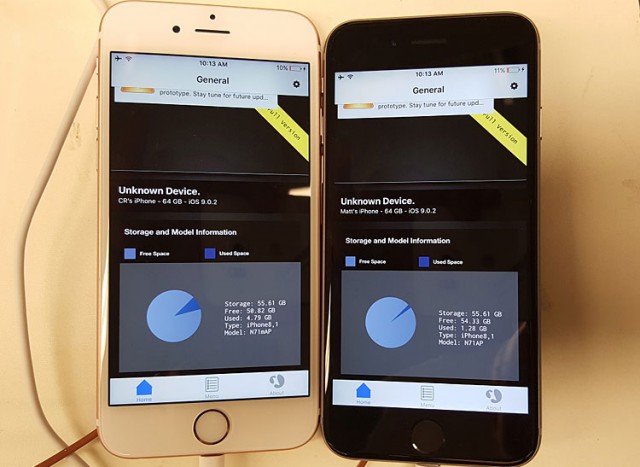Consumer reports dismisses iPhone 6s 'chipgate' with battery life tests

You may have read that some iPhone 6s and iPhone 6s Plus units have better battery life than others, and that, in order to get the "best" version, your new smartphone must come with the TSMC-made A9 processor. The A9 processor manufactured by Samsung has been said to be less energy efficient, leading to shorter battery life. But how much of that is true though?
Consumer Reports has tested two iPhone 6s units, one with a TSMC-supplied A9 processor and the other toting a Samsung-made A9 chip, and found that that the difference in battery life between the two units is entirely negligible. So, naysayers can now put an end to all the "chipgate" talk.
How much is that difference exactly? It is "less than two percent". What's more, in one test Consumer Reports says the difference is even smaller at "less than one percent". Realistically speaking, a two percent difference in battery life can be considered an acceptable variation between A9 processor samples supplied by the same manufacturer; less than one percent is virtually irrelevant.
To eliminate any variables, both iPhone 6s units have the same provider -- T-Mobile in this case -- and run iOS 9.0.2 with the same software configuration. Even the storage capacity is the same, 64 GB for both units. Cellular conditions were arranged so that they are the same for both units, and even the brightness was manually set, at 150 nits, to avoid any variations.
Consumer Reports not only wanted to find out whether there is any difference in battery life, but also if there is any real difference in terms of operating temperature. With a difference of just one percent separating Samsung and TSMC-made A9 processors, it is fair to say that they perform virtually the same in this regard as well.
As you can see, whether your iPhone 6s, or iPhone 6s Plus, comes with an A9 processor made by Samsung or TSMC does not really matter. Apple is more conservative, citing a two to three percent difference in battery life, in case you are wondering.
